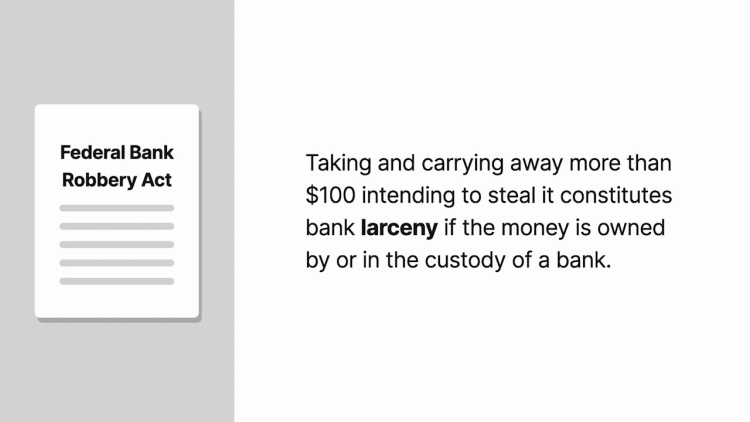United States v. Rogers
United States Court of Appeals for the Fourth Circuit
289 F.2d 433 (1961)
- Written by Samantha Arena, JD
Facts
James Rogers (defendant) went to the bank to cash a check that was payable in the amount of $97.92. Rogers asked a teller to deposit $80 from the check into an account and give Rogers the remaining amount in cash. The inexperienced teller mistook the date on the check as the amount payable to Rogers. The teller deducted $80 with which to credit the account and placed $1,126.59 in cash on the counter in two bundles of $500, with the rest in miscellaneous bills. Rogers took the cash and left the bank. Rogers was charged under the state’s bank-robbery statute, which codified the common-law offense of larceny. At trial, testimony established that the teller’s drawer was short the exact amount of the difference between what the check was actually payable for and what the teller mistakenly paid. Rogers testified that he only received the correct cash amount of $17.93. The trial judge instructed the jury that Rogers could be convicted based on a finding that the much larger amount was taken by Rogers either with the intent to appropriate the overpayment or with a subsequently formed intent to appropriate the overpayment. Rogers was convicted and appealed, arguing that: (1) the evidence was insufficient to establish the commission of a larceny, and (2) the jury instructions were improper.
Rule of Law
Issue
Holding and Reasoning (Haynsworth, J.)
What to do next…
Here's why 907,000 law students have relied on our case briefs:
- Written by law professors and practitioners, not other law students. 47,100 briefs, keyed to 996 casebooks. Top-notch customer support.
- The right amount of information, includes the facts, issues, rule of law, holding and reasoning, and any concurrences and dissents.
- Access in your classes, works on your mobile and tablet. Massive library of related video lessons and high quality multiple-choice questions.
- Easy to use, uniform format for every case brief. Written in plain English, not in legalese. Our briefs summarize and simplify; they don’t just repeat the court’s language.





